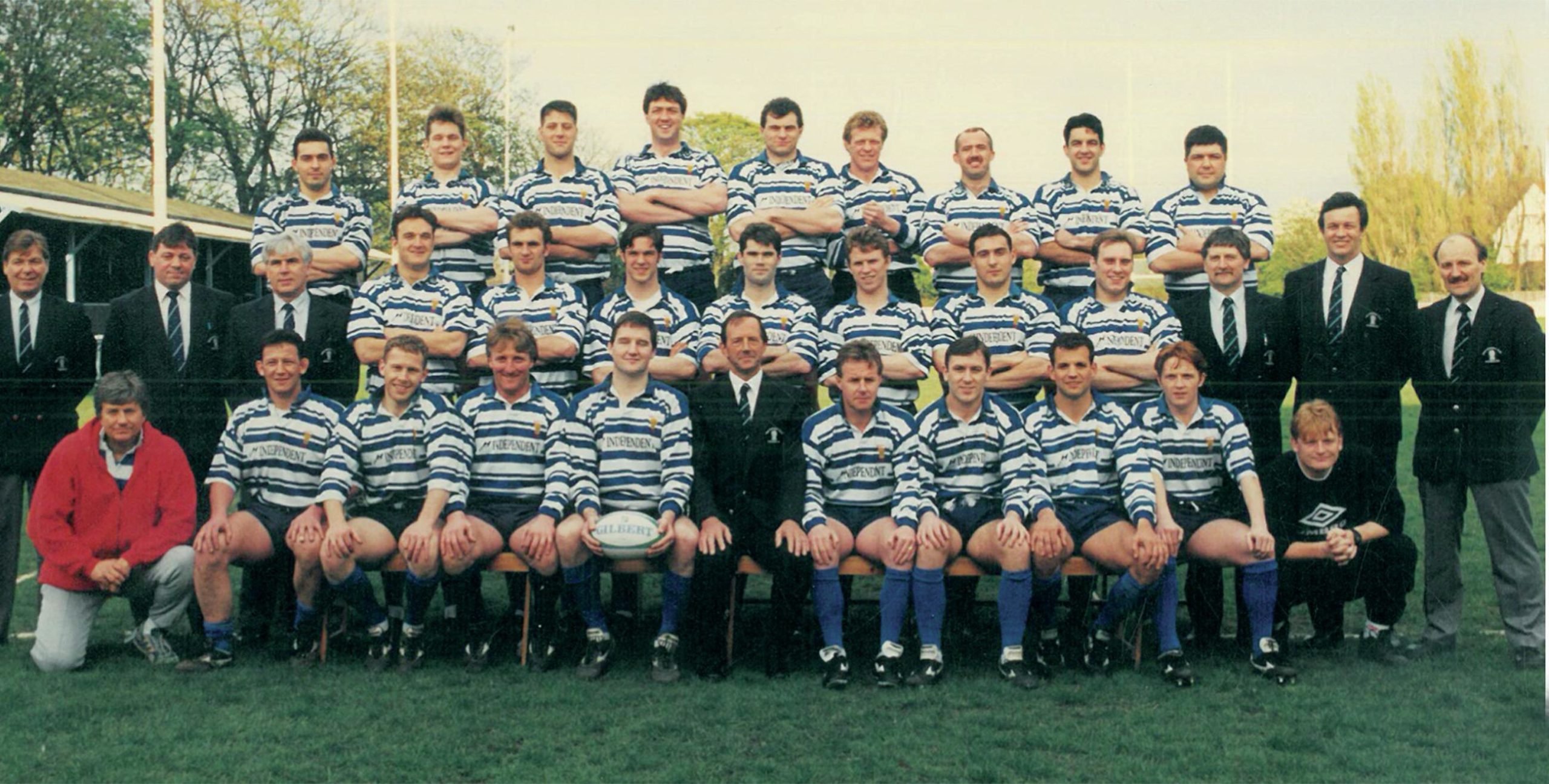
Sale – Courage League 2 Champions 1993/94
Sale had been out of the top flight for six seasons after being relegated at the end of the first season the Courage League system was formed in 1987-88. And probably not many would have forecast that they would have made the return to the top flight the season after a massive restructuring of the leagues had taken place.
At the end of the 1992-93 campaign, West Hartlepool, Saracens, London Scottish and Rugby were all relegated from the Courage League One. And some of the biggest names of the amateur era – Bedford Blues, Richmond, Rosslyn Park, Blackheath, Coventry, Flyde and Morley – were all kicked out of the second tier.
Waterloo, Wakefield, Nottingham, Sale and Moseley kept their places while Otley were promoted from League Three to complete the numbers.
Sale brought in former Wales flyhalf Paul Turner as player-coach in 1992, the first building block towards getting back into the top flight.
“There was a want within the club to succeed and go up,” Turner, who now coaches Ampthill, tells The Rugby Paper. “But there wasn’t a lot of will, and I think bringing me in was the start of all that.
“It was unusual for someone to go out of Wales and move up north that was rugby union and not rugby league.
“The season before, we almost got relegated albeit finishing in fifth or sixth and then the following season we had targeted the top three.”
Turner says he knew from the start of the campaign their biggest rivals were likely to be West Hartlepool and Saracens, who were itching to get back into the top division.
“We were very wary of the four teams who had come down because they had been playing top-flight rugby,” adds Turner.
“We had a good start, and that was really important. We had to go down to London Scottish early, we didn’t play a lot, but we beat them. That was unusual – we didn’t win in London a lot.
“Then we played Saracens at home, and I’ll always remember we were 48-0 up at half-time. It was ridiculous. We just ran riot. Then we won a tight game down in London.
The only game we lost early on was when we were dreadful at Otley.
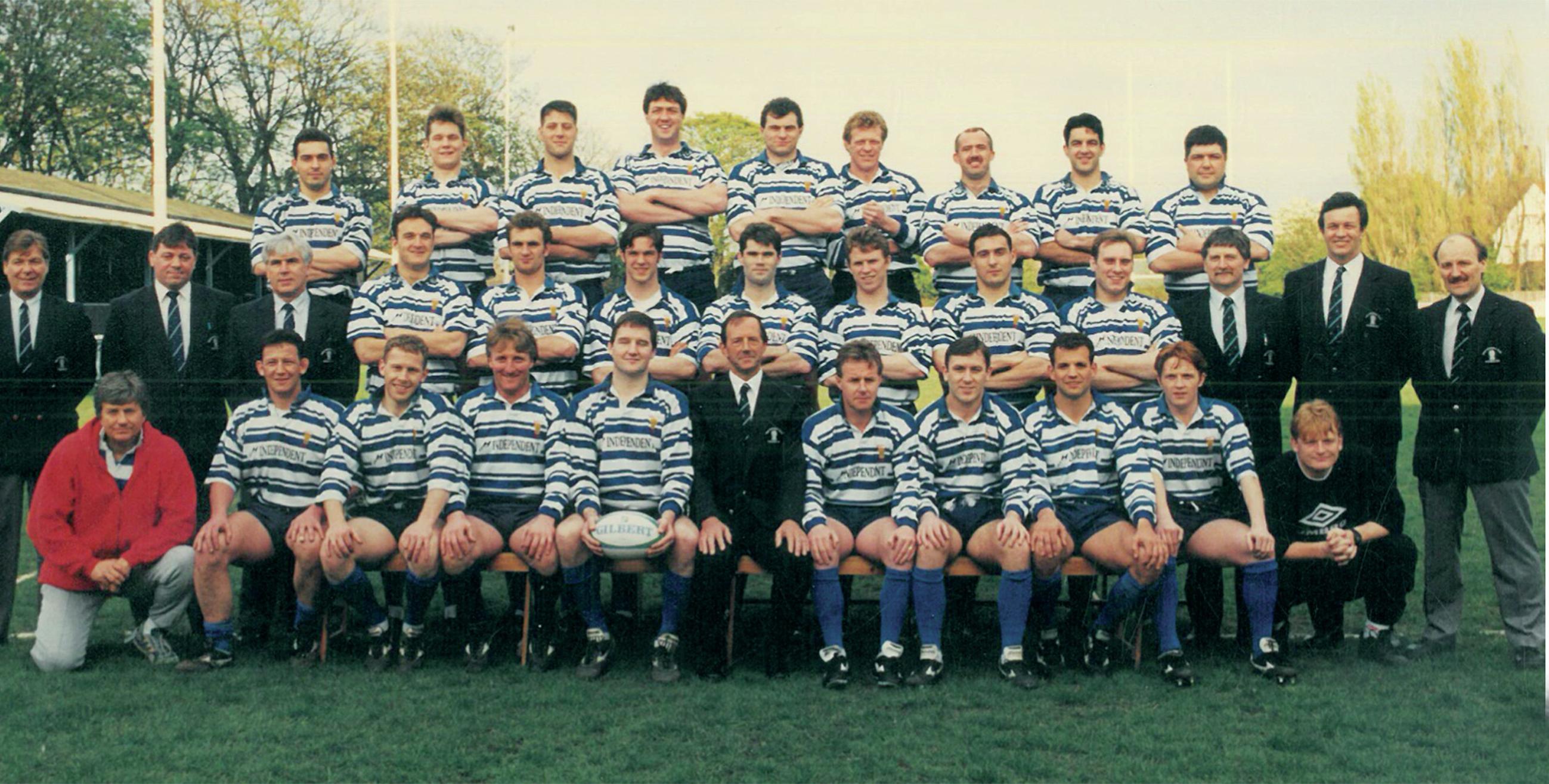
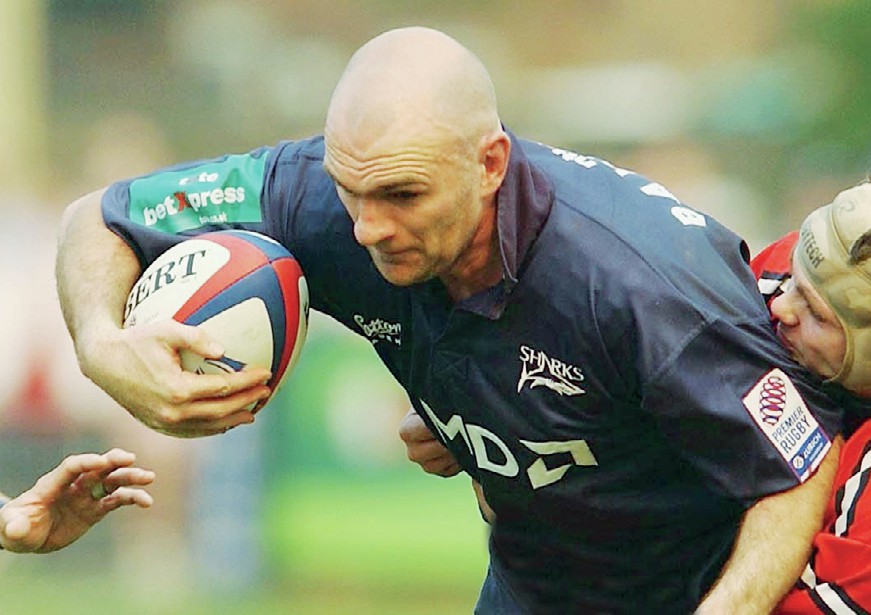
They knocked us out of our stride.”
The spine of the team was built around solid local players such as Steve Diamond at hooker and his earrings on either side at prop, the Smith twins Paul and Andy.
A handful of players were brought across the Pennines.
One of them, Jos Baxendell, left, who had only initially watched a couple of games when
his mate Matt Bliss was playing, had a massive impact after joining.
Baxendell says: “I was at Sheffield before, and I think they were League Three at the time, so it was one division above. But it was a massive step up. We also played against Harlequins in the cup, and I played against Will Carling, who I’d only ever seen on TV. It was amazing.
“Luckily, I got into the side when
Gareth Stocks got injured, and I had joined the week before and started playing. All the forwards then were a bunch of psychopaths.
“The Smith twins at props, Dimes at hooker. Having that bunch of psychopaths is something that rugby misses now. If you found yourself on the wrong side of the maul they stamped all over you.
“If you ever went out for a pint on a Saturday night with the forwards, it always ended in trouble. And I bet that doesn’t happen anymore. It was a great time to be involved with Sale. Heywood Road was fantastic.”
WHERE ARE THEY NOW?
BACK ROW
Paul Smith: The Nantwich-born prop has been Rugby Manager at the Sharks since 2004.
Matt Dobson: Back row, came to Manchester for work as a lawyer and is now a Partner at Field Fisher Waterhouse.
Dave Erskine: Ireland lock, worked in insurance and is now working in client services for Griffiths & Armour.
Rick McCartney: Lock, went to work in B2B and is now Head of Sales and Business Development for Travatar.
Dave Baldwin: Lock, went into coaching and management at Yorkshire Carnegie and works in car leasing.
Andy McFarlane: England B No.8, lives in South Manchester and works in the rail industry for Central Rail Systems Alliance.
Martin Whitcombe: Prop, was a PTI in the RAF and is now an author, and his son James plays for Leicester Tigers.
Dylan O’Grady: Ireland international flanker, was a nightclub doorman who now installs utilities in his native Manchester.
Nick Wheeler: Prop, has spent 35 years working for IBM in the finance sector of Mainframe Sales in Stockport.
MIDDLE ROW
Robbie Dickson: Is still working for Sale Sharks and is the long-serving kitman.
Brian Wilkinson: Sale’s CEO was a successful businessman, with interests including cafes, until his death in July 2021.
Eric Bassett: A structural engineer with Eric Bassett Associates in Sale.
Matt Birt: Centre, does some copywriting and works for a financial services company.
Jos Baxendell: England international centre, worked as a Surveyor and is now a Property Consultant at BE Group.
Simon Verbickas: Winger, coached for the RFU is Sedbergh School Sports Development Officer and Wharfedale’s DoR.
Howard Greenwood: Flanker, worked in technology recruitment at Computer People and is the Co-founder of Jump Advisory Group.
Kevin Young: Winger, is now involved with Keighley Rugby Club and is a facilities and office manager for a national engineering company.
Andy Smith: Prop, and twin brother of Paul, a quantity surveyor is Senior Cost Engineer at Jacobs.
Luke Hawson: Hooker, works as sales manager for the packaging materials firm Kilby Packaging.
Alan Blease: A geography teacher who became the Sharks kit manager until his death from cancer in July 2020.
Richard Bliss: Team manager, worked as an executive at Heinz.
Dr Peter Simpson: Has been a GP in Manchester for 38 years.
FRONT ROW
Piat: Helped out with fitness and filming matches, worked in shipping.
Steve Diamond: Hooker, twice coached Sale Sharks and is now in charge at Worcester Warriors.
Mark Warr: England U20 scrum-half, worked in social work. His son Gus plays for the Sharks.
Phil Stansfield: Centre, was a dairy farmer before starting the Cornish Cheese Company.
Mike Kenrick: Flanker, worked in sales, then as an operations director before becoming practice manager of vets R T Jones.
John Gardiner: Club president, a quantity surveyor, was a partner in Tozer Gallagher. Died in September 2018.
Paul Turner: A former Wales international fly-half, is the head coach at Ampthill and scouts for the Welsh Rugby Union.
Phil Jee: Fly-half, worked in insurance and is currently an account executive at C&C Insurance Brokers.
Jim Mallinder: England full-back, former Northampton Saints boss and is now Scottish Rugby’s performance director.
Ross Harper: Utility back, is now sales director in the North & Operations Director for Flexiglass.
Mark Nelson: The head coach of Lancashire RFC and is a landscape artist and songwriter.
Sale scored the most points that season, 438, conceded the least, 160, and had the league’s top try scorer in the ranks, a young Simon Verbickas, who crossed the whitewash 16 times.
And Baxendell points out that it was Turner pulling the strings at No.10 that did most of the damage in a league that was generally dominated by large forward packs.
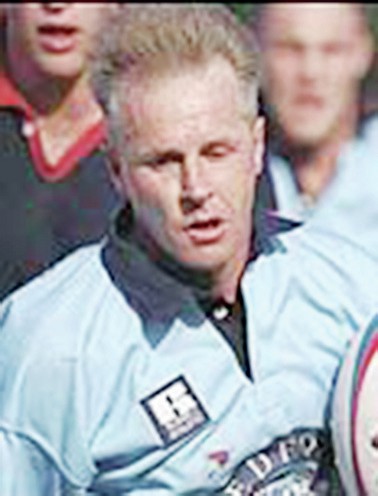
“Paul Turner was at fly-half, and I have never seen anything like it. It was great to play outside. It was a very exciting time. It was very entertaining team to play in with him throwing the ball around. That league was a bit stodgy, but we played differently to everyone else. We were stronger in the backs.
“Simon turned up quite late in the season as a young kid. And was a very good finisher,” he adds. “It was a very exciting time and we always had a great atmosphere at Heywood Road.”
West Hartlepool had been top of the table nearly all season, but it was Sale who ended their unbeaten start to the campaign with a 28-12 win just before Christmas.
And the fixture gods decided in their wisdom that the final game of the season would see Sale travel to Brierton Lane for a winner takes all title decider. Both teams had already been promoted, but in a plot twist, Sale, who had come up on the rails, only needed a point to take the title. After beating Nottingham 41-7, they saw Hartlepool lose 24-22 at London Scottish.
And they got the point they needed drawing 11-11, largely thanks to Verbickas scoring in the corner from Jim Mallinder’s pass in the second half, which altered the balance of power.
Turner adds: “Going there and trying to get a point was obviously easier. The other thing was most of the boys knew each other because they all played for the north quite a lot.
“And there was quite a lot of knowledge between camps. They were a very good side. But we had enough to get the job done.”


British and Irish Lions
Charlie Elliott: The 17 backs I would select for the British and Irish Lions

British and Irish Lions
Charlie Elliott: The 21 forwards I would select for the British and Irish Lions squad

















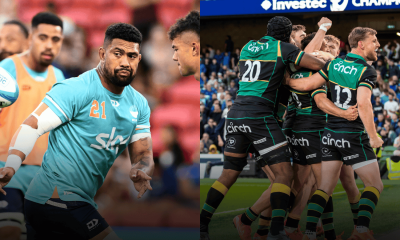
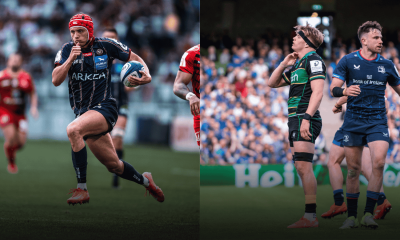
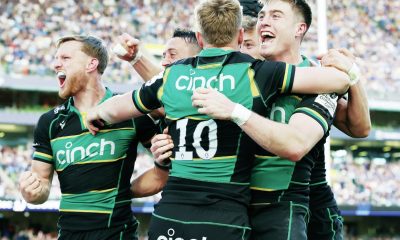

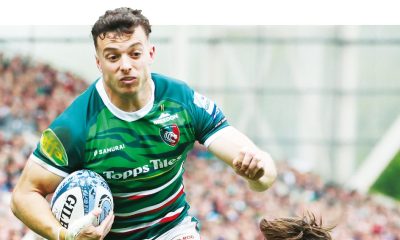

You must be logged in to post a comment Login